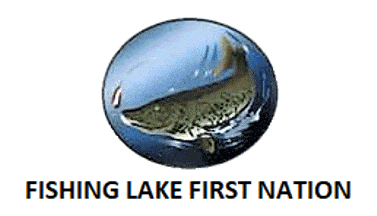Chief Darcy Desjarlais of Fishing Lake First Nation and the Honourable Rebecca Alty, Minister of Crown-Indigenous Relations, announced a settlement agreement resolving the Nation’s Agricultural Benefits claim, also known as a Cows and Plows settlement.
Canada will pay more than $101 million in compensation to the Nation for failing to fulfill the federal government’s Treaty 4 obligations to provide farming tools, crop seeds, and livestock.
“When our ancestors entered into Treaty, they did so at a time when our people were suffering. They signed not only for their own needs, but with foresight for the generations to come. That same thinking guided us as we created this trust—designed not only to help our people today, but to ensure future generations have opportunities our ancestors were denied. This settlement is about more than money; it is about creating an economic foundation that can grow, give back, and pull our Nation forward, helping us reclaim what was lost and build a better future,” said Darcy Desjarlais, Chief Fishing Lake Fist Nation.
To guarantee that the capital continues to grow for future generations, Fishing Lake First Nation will put all of the settlement money into the recently established Waywaynih Kunawapunteeing Trust.
The Nation can leverage loans with interest rates significantly lower than the expected yearly returns on the trust’s investments if the entire settlement is maintained.
With this approach, the Nation will be able to offer per capita dividends and other immediate benefits without devaluing the settlement.
This strategy ensures that future generations will profit from this historic agreement as well as provide a long-term source of wealth that can be invested in community priorities like housing, language, culture, and economic development.
The nation’s ancestors had a vision of mino-pimâtisiwin (a good life) when they entered Treaty 4, and this step is a step toward regaining economic independence and achieving that goal.
“Today’s settlement with Fishing Lake First Nation is a meaningful demonstration of our commitment to acknowledge and address historical injustices. Building trust is essential in our efforts to advance reconciliation with First Nations. However, in order to build trust we must first take responsibility. Our hope is that this agreement will strengthen Canada’s relationship with Fishing Lake First Nation for generations to come,” The Honourable Rebecca Alty, Minister of Crown-Indigenous Relations.
Canada’s continuous attempts to promote reconciliation by restoring trust and fortifying its ties with First Nations include the settlement of individual claims.
“The agreement with Fishing Lake First Nation represents a renewed commitment to working together in partnership under Treaty 4. This is reconciliation in action,” explained The Honourable Buckley Belanger, Secretary of State (Rural Development).
Canada is accepting responsibility and striving for a brighter future by offering fair settlements in acknowledgment of broken commitments.
The United Nations Declaration on the Rights of Indigenous Peoples Act serves as the foundation for this effort.
Within the Treaty 4 territory is Fishing Lake First Nation, an Anishnabe nation. This region lies north of Flin Flon, Manitoba, and Prince Albert, Saskatchewan.
On September 15, 1874, Treaty 4, commonly referred to as the Qu’Appelle Treaty, was signed in Fort Qu’Appelle, Saskatchewan.
Treaty 4 gave the federal government Indigenous territory in return for payments, provisions, and the right to reserve lands.
Most of the territory covered by Treaty 4 is located in southern Saskatchewan. There are small areas in southern Alberta and western Manitoba.
229 claims have been resolved, over the past five years, for nearly $15.1 billion dollars in compensation.
53 agricultural benefits claims have been resolved in Treaties 4, 5, 6, and 10, for more than $6.9 billion in compensation to date.
